Let wonder last
It's that time of the year when our busy island falls into a light slumber. Our streets are emptier, out-of-office replies clog up inboxes - Singapore is on holiday. But even as we indulge in our wanderlust, do foreign sights and sounds guide us through our own emotional landscapes too?
FIVE years ago, Ong Boon Kok found himself in the Nepalese Himalayas, being followed by 108 yaks. It was the most treacherous trip he had taken in his 47 years of life. For 16 days, he braved the dangers of landslides triggered by torrential downpours and fought altitude sickness at more than 5,000 metres above sea level. "Sometimes during the trip I thought I could die," Mr Ong recalls now. And then there had been those yaks. All 108 of them.
Mr Ong had been in Nepal on a pro-bono assignment, filming a documentary for a Singaporean Buddhist centre about a Nepalese monastery's quest to save the yaks from being slaughtered. Led by a lama, a group of about a dozen people shepherded these 108 yaks on foot over 16 days to a village where they would be taken in by villagers there. Mr Ong, now 52, is a travel addict who goes on five to six trips a year. For all that travelling, this Nepal trip had been vastly different.
"The trip changed my whole perspective on life," he says to me.
Let the wonder last
There must be many Singaporeans out there - hundreds of thousands, I reckon - who are obsessed with travelling the way Mr Ong is.
In this country, where life has a tendency to pelt past us, travel can take on a life-lengthening quality. It is in the space between destinations where there is room to pack multiple lives into one brief and glorious burst of mortal existence.
Navigate Asia in
a new global order
Get the insights delivered to your inbox.
The numbers say a lot. From 2006 to 2015, a decade that saw the onslaught of the Great Recession and flu pandemic, the number of Singapore residents leaving by air and sea increased every year.
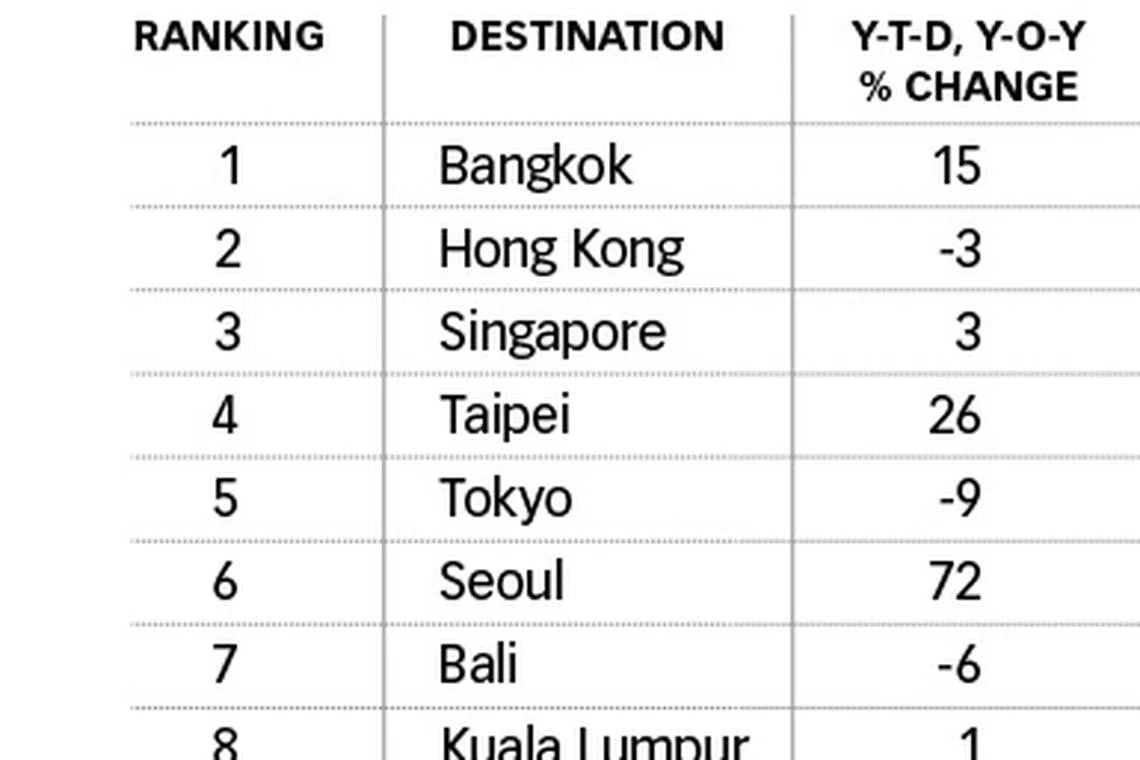
Last year, citizens and permanent residents left the country by air or sea 9,125,331 times, figures from the Singapore Tourism Board show. This doesn't even include land crossings. And there were only about 3,902,700 of us in 2015, according to the Department of Statistics. Of course, the disproportionate number of Singaporean residents travelling overseas is largely because of our small size - when we leave the city, we leave the country too.
Globalisation has given us more opportunities to leave our shores, too. The growth of budget airlines and ease of obtaining travel information online made it easier for Singaporeans to travel abroad. They have also helped us do more personalised travelling, and travel even further.
"There is always a latent desire to travel. Social media, the Internet can now better connect people with the specific interests they have. This allows for more meaningful travelling experiences," said Terence Fan, assistant professor at Singapore Management University.
The perception that travelling can elevate your social status also adds to Singaporeans' urge to travel. Travelled to somewhere far-flung and obscure? So adventurous! Stayed at a private villa with a private beach? "Jeals much! Wished I also had the time and money!" your friends would comment on your Facebook photo.
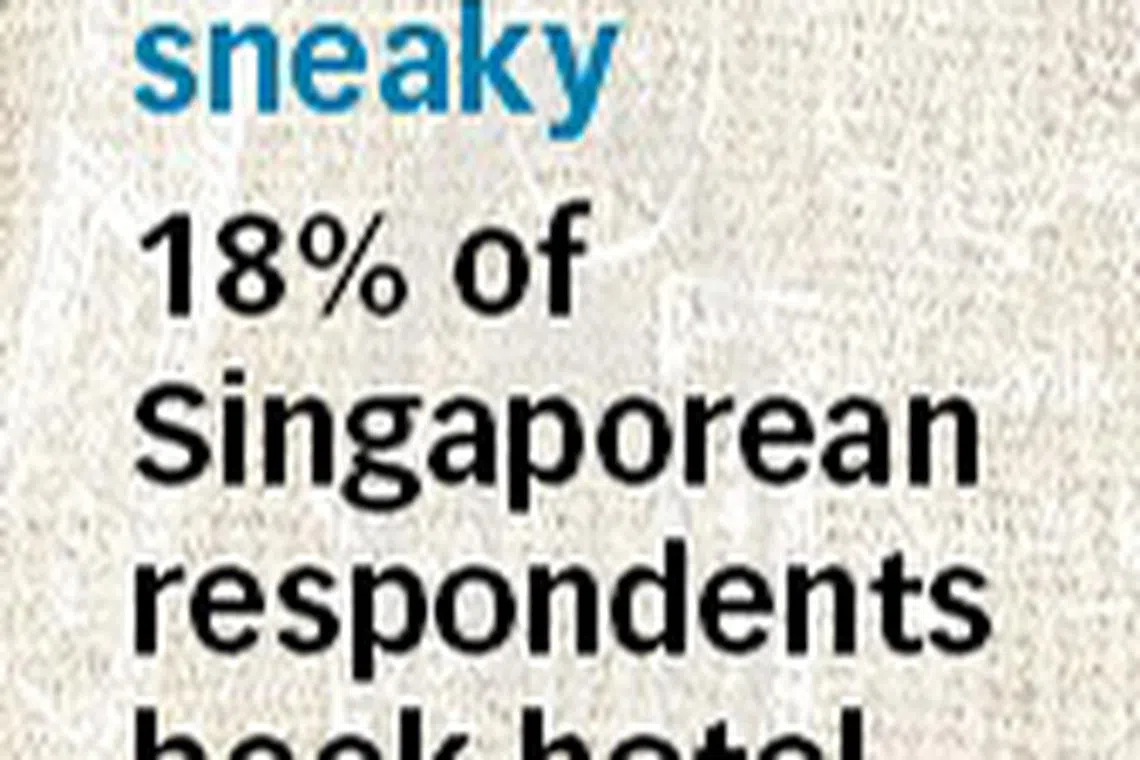
"Travel is seen as being sophisticated," says former travel journalist Andrew Duffy, who is now an assistant professor at at Nanyang Technological University. "It also indicates freedom, choice and money - these are all things we would like more of ourselves, so we respect those who do have them."
Anecdotally, Mr Duffy says that Singaporeans mainly look at sights, eat and shop when they travel. "It's interesting that they do not do anything actively, and most of it is passive enjoyment of what is there," he notes.
And yet, for some of us, these explorations go beyond just being geographical, sometimes. They can quietly take on another dimension, guiding us deeper into our own selves; we end up navigating our internal, emotional landscapes.
Out of the millions of trips overseas that Singaporeans make every year, how many of them end up changing the traveller, I wonder?
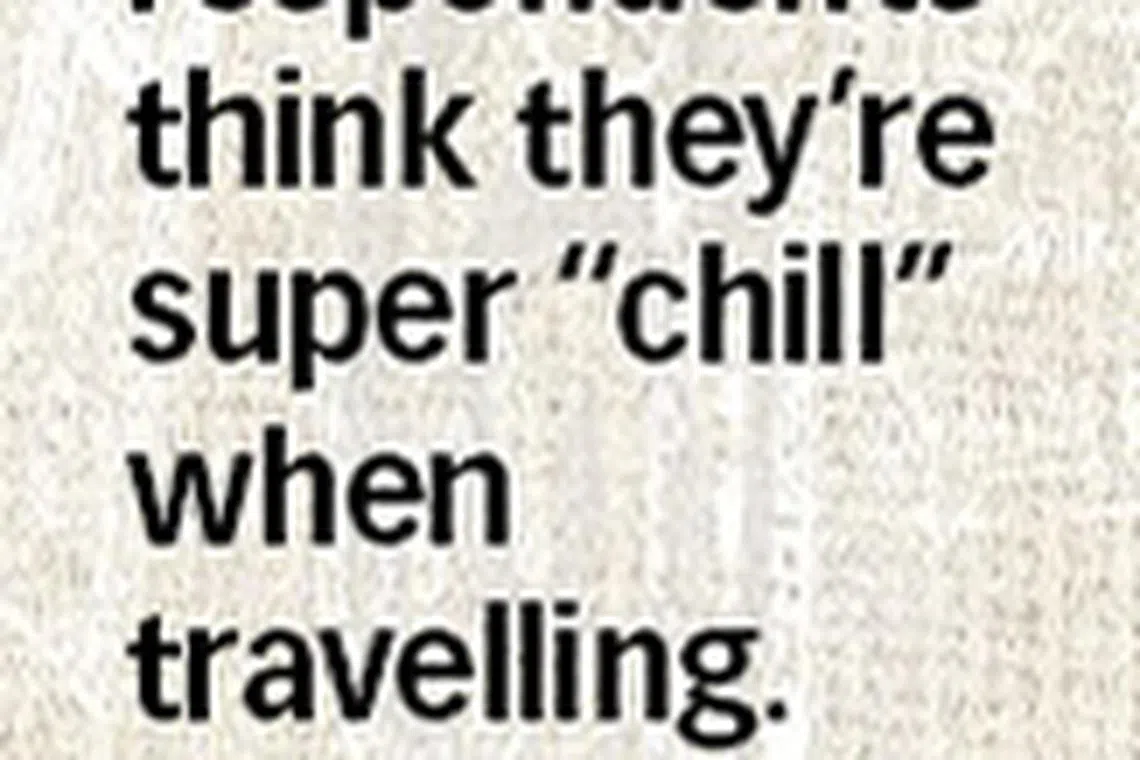
In this day and age when freedom of movement is fast becoming the whipping boy for cultural tensions, what some of them shared with me may prove instructive.
"The world is a lot bigger than Singapore"
At the very basic level, travelling helps travellers understand themselves better. This, in turn, can make relationships stronger.
For consultant and executive coach Avalyn Lim, 42, family trips give her precious bonding time with her husband and their three children. These annual trips often last two to four weeks.
By the time this article goes to print, the family would have just begun their four-week grand tour of New Zealand with lots of camping and hiking, never mind the recent earthquake that shook South Island.
"We can't foresee what'll happen anywhere, even if we stay in Singapore," says Ms Lim.
Each time before they travel, they take about two months to plan their itineraries, buy tickets and find accommodation all on their own.
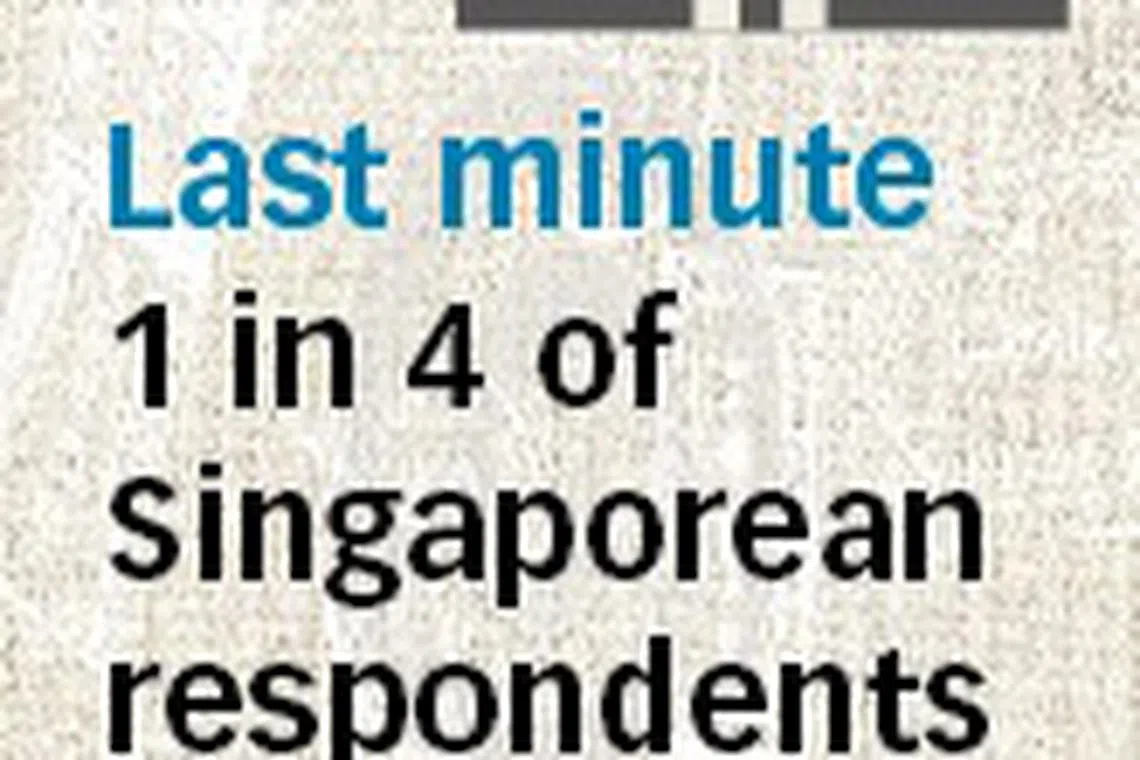
The hassle is worth it. "We want to do things with the kids that expose them to different cultures, expose (them) to a wide variety of experiences," Ms Lim says. "We want for them to see that the world is a lot bigger than Singapore."
And all you touch and all you see / Is all your life will ever be
Beyond that basic desire to simply see and do all that is novel, it is worth noting that the specifics of what you see and do will leave an indelible imprint on your person.
Such a revelation came to me in the form of Greece's twinkling man-made stars.
I was on my first backpacking trip in 2004. My friend and I had spent close to 20 back-breaking hours flying to Athens via a long stopover in Dubai and a short stop in Larnaca, Cyprus, then took a slow ferry across the Aegean Sea to Santorini. It was already nightfall when we arrived.
Hundreds of tired passengers huddled in the ferry's hold, waiting for the ramp to be lowered so we could finally be set free. Down the ramp went, and up I looked.
A sheer volcanic rock face stood before us in the dark. At its peak were the glimmering lights of Fira, the island's main town.
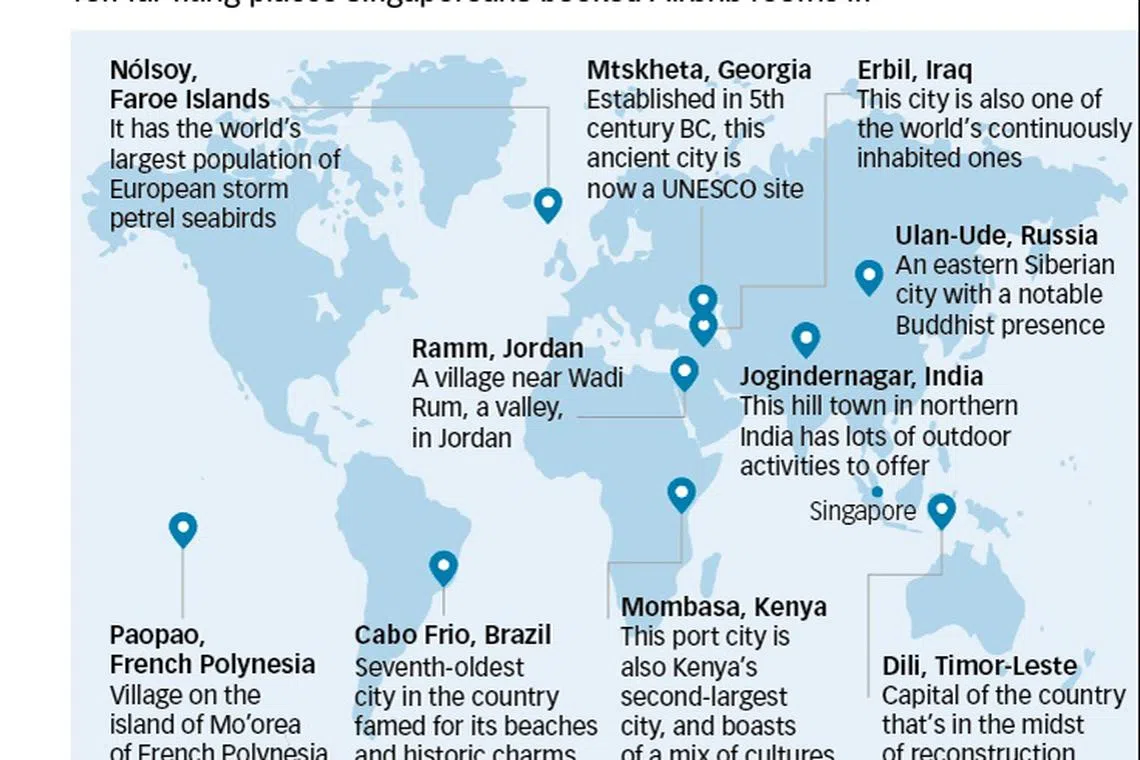
I was captivated and enamoured.
If this is what love is, I would be content to continue this courtship of sorts - backpack on my shoulders, traversing the streets, skies and seas of the world with no fixed plan. Serendipity would be my best companion.
For Haryati Mahmood, this revelation came at a later age, in a cup of tea.
The 38-year-old photo editor used to visit only well-known destinations, but had to change her plan to visit Melbourne in the late 2000s when the swine flu loomed large. She decided, on a whim, to check out Kathmandu instead.
It was the monsoon season and a local guide advised her against trekking on the Anapurna Circuit. Instead, he invited her to visit his home village. She accepted.
Armed with a heavy dose of caution, Ms Haryati travelled overland by bus and on foot for a day before reaching the remote village. All that wariness eroded after she met a lady who was working in the fields.
"She invited me to her house; her house was made of earth," Ms Haryati tells me over coffee one day, her eyes glittering at the memory.
"She had nothing inside. And she was still offering me tea."
That was the moment it all changed for her.
"From then on, I decided to stop being a whiny little b***h from the city and open up my eyes. Be like those villagers - they have so little, yet they're so giving."
Mr Ong has the same view, adding that a comfortable life can "make people lose their fighting spirit." This is why he adores backpacking. "There is a lot of uncertainty - how do you deal with it, how do you face up to it? It's a kind of growth and development and a kind of experience," he says.
And the culmination of travelling's transformative effect was that 16-day trek he made in Nepal. "We should treasure what we have in life. Work hard, play harder," he said. "I've learnt to let go. There are too many possibilities in life, there are no dead corners."
For others, trips overseas have nourished, or even altered, their lives and careers in Singapore.
Take June Ngiam. The 30-year-old chemistry graduate of the National University of Singapore started going on missionary trips with her church 10 years ago.
On several of these trips, she got involved in providing primary healthcare to locals. This can include measuring blood pressures, sugar levels or conducting eye checks.
During a 2006 trip to Baguio in the Philippines, Ms Ngiam was particularly struck by how the locals were unwilling to spend on medication as it was not cheap. "So our work brought joy to the parents, to the children over there," she said. "This trip made me want to study medicine."
Having reached that conclusion a decade ago, she is now in her final year at the medical school in University of Newcastle in New South Wales.
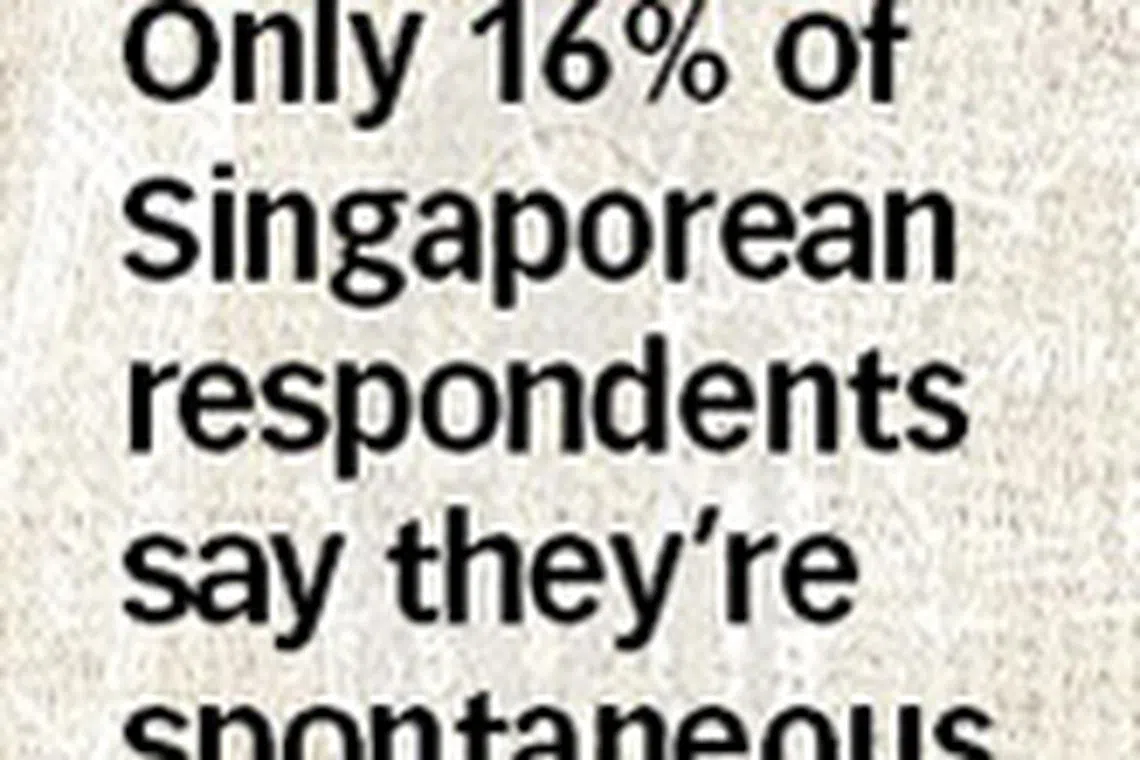
For Jocelyn Chua, a stint in Belgrade, Serbia during the summer of 2009 affected how she approached her work.
The drama educator, now 33, was there for a three-week programme with the Dah Theatre. Not only did she interact with theatre practitioners from all over the world, she also experienced daily life in Belgrade as she was staying in a residential neighbourhood.
The trip was one that she cherished a lot, as it gave her the chance to immerse herself in the energy of a foreign place that is different from what she gets in Singapore.
"It was extremely helpful for my work," she said. "To be able to share stories about the sort of energies in people that I experienced in Serbia helped to give a much more personal, experiential dimension to the way I teach my students."
Wherever you go, there you are
While the wanderer is shaped by his travels, he also leaves a mark on the places he has been. On a sobering and physical level, this explains why Thailand has closed off four islands to tourists this year, so that it could protect the reefs and beaches from degradation.
There are other and less destructive ways to leave a place and its people ever so slightly altered.
I visited a Macedonian friend of mine, Sonja Stojadinovic, in her hometown of Veles 10 years ago. She hosted me in her home, and took me to Stobi, an archaeological site near Veles, and Skopje the capital. Over the span of a week, we bonded more over copious amounts of homemade schnapps.
When I chatted with her last month, Sonja, who is now 37 and a freelance researcher, told me: "Back then, many Macedonians knew that Singapore was an Asian country, but we didn't know that it was just a city too!
"There was mutual benefit in receiving a Singaporean guest. It opened my eyes to what Singapore is like, and made me think about what kinds of expertise the two countries can exchange," she said.
"Thank you for flying with us"
Essayist Pico Iyer said that "we travel, initially, to lose ourselves; and we travel, next, to find ourselves".
Isn't that very much like falling in love? That initial rush of blood to the head morphs into something deeper the more we experience it.
Travelling is similarly tempered. Over time, the excitement that we feel as we check in at Changi Airport is replaced with calmness and gratitude for whatever the trip may bring and the infinite possibilities on offer.
When we eventually return from our latest adventure, we touch down on the runway at Changi, brand-new. And then we wait, until we can do it all over again.
Copyright SPH Media. All rights reserved.





